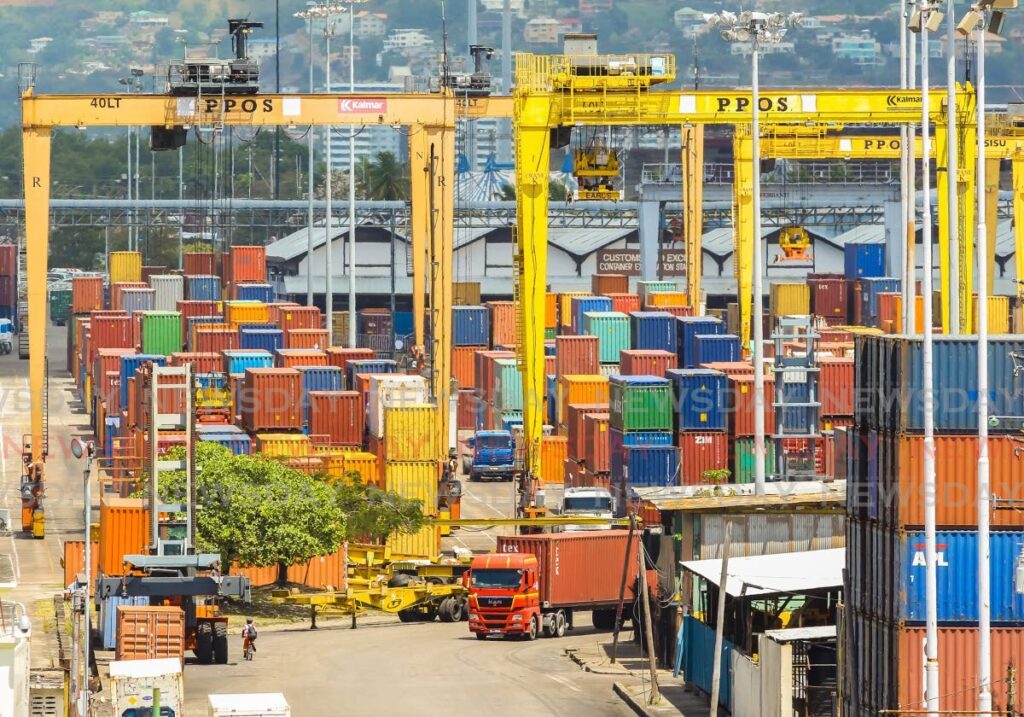Port workers down tools again

WORKERS at the Port of Port of Spain downed tools again on November 18 and demonstrated outside the Ministry of Works and Transport to demand better wages and working conditions.
On the same day, Michael Annisette, president of the Seamen and Waterfront Workers Trade Union (SWWTU), issued a statement reaffirming the union’s commitment to securing a 12 per cent wage increase and the "immediate implementation of the framework agreement" to improve port efficiency and conditions.
“This struggle is not about greed or self-interest; it is rooted in social justice, wage equity and a vision of a better TT for all, not just the privileged few,” Annisette said.
Annisette was critical of what he perceived as the government’s failure to honour a 2015 framework agreement negotiated with the Port Authority of TT (PATT).
He said modernising the port’s operations through international best practices was a collective vision endorsed by the union and former transport minister Stephen Cadiz, which would have been agreed to with the promise of a 12 per cent pay rise for the 2014-2017 bargaining period.
The government said the agreement was not binding in the Chief Personnel Officer's absence.
“Our fight for justice is for single parents, pensioners, and the working class who bear the brunt of indifference from those in power,” Annisette said, calling for dockworkers to remain steadfast in the face of disinformation and threats.
Annisette expressed frustration that port workers were overlooked despite their crucial role during the covid19 pandemic and their continued dedication.
“In 2024, imagine being paid a decade-old wage while working tirelessly, day and night, seven days a week,” he said.
This latest work stoppage compounds delays citizens and businesses face in accessing cargo.
The business community has been outspoken about the problem, with the Joint Chambers, an amalgamation of the country’s four largest business chambers, issuing a joint call for the government to intervene and settle the labour issues or find common ground. They warned that prolonged industrial action could have far-reaching economic consequences.
“Dockworkers, I call on you today not to be swayed by the baseless attacks against the SWWTU and its members. Do not let the wilful disinformation and threats intimidate you," said Annisette.
"The calls to ‘swiftly end the impasse on the port,’ including invoking the IRA (Industrial Relations Act) to undermine your legitimate struggle, are blatant attempts to silence our demands for fair treatment.”
Labour Minister Stephen McClashie told Newsday on November 15 that the ministry was continuing discussions with union representatives. McClashie said he hoped the ministry did not have to “revoke any of the solutions (offered) by the Industrial Relations Act under those circumstances.”
The IRA provides mechanisms for resolving labour disputes, including conciliation, in which a government-appointed conciliator helps both parties reach a settlement to avoid escalation; arbitration, where an independent arbitrator makes a binding decision if conciliation fails; and intervention by the Industrial Court, which can issue legally binding orders if other methods fail to resolve the dispute.
In some cases, the government may impose terms on both parties, such as wage increases, to end industrial action.

Comments
"Port workers down tools again"